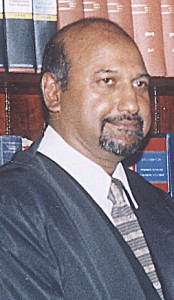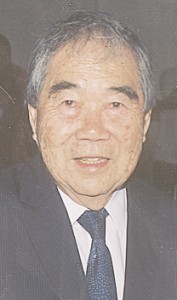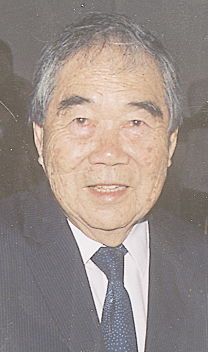Chancellor of the Judiciary (ag) Carl Singh yesterday said that recent “unjustified and uninformed criticism” of judges and their decisions has raised the consciousness of judges of the need for the independence of the judiciary to be safeguarded.
Addressing a special sitting of the Supreme Court of Judicature to pay tribute to the late former President of Guyana Arthur Chung, Chancellor Singh said that much has changed since the late President Chung served on the bench but the foundation upon which the judiciary rests has come down through the years intact.
“What has changed, is that as opposed to years gone by, there are those in our society who feel compelled to level unjustified and uninformed criticism of judges and their decisions. Let me hasten to point out that justifiable and constructive criticism of the decisions of judges cannot be considered to be objectionable”.

It was Chancellor Singh’s first public comments since a verbal exchange between the judiciary and the executive in the wake of a decision by Chief Justice Ian Chang to release a murder accused on bail.
In May Home Affairs Minister Clement Rohee noted his disapproval with Justice Chang’s decision charging that the judiciary has now become totally unpredictable and case law is now thrown out of the window. He said that there appeared to be a disjointed criminal justice system, which was granting bail to murder accused. “We now have bail applications being granted to murder accused”, the Minister said.
Rohee said further that, on the one hand, while the executive authority was insisting on draconian penalties to support other measures in the context of a holistic approach to enhance public safety and security, the judiciary seemed unconvinced and was increasingly becoming more favourably disposed to upholding the fundamental rights of accused persons. Rohee’s outburst prompted a response from the Office of the President distancing itself from the minister’s statement. “Notwithstanding the minister’s concerns that are a reflection of social sentiment, the Office of the President (OP) wishes to advise that the executive is unprepared to accept any contention that such a ruling (by the judge) actually constitutes a challenge”, OP had said.

In the other, R. v Balkaran Singh and Others, the late Justice Akbar Khan declared the committal proceedings of 22 persons charged with murder a nullity. ”The discharge of twenty-two persons charged with murder would be a sensational issue today, as indeed, it would have been in 1964. Yet, I have found no record, that these decisions were seen by anyone as tending towards a challenge of the executive”, Chancellor Singh said.
Chancellor Singh noted that the court is the guardian of the constitution and the judges are the protectors of the fundamental rights of the citizens. This, he said, is their lawful role. He said as judges they have taken an oath to honour, uphold and preserve the constitution, adding that they will do so fearlessly. By doing this, he said, it is what the late Arthur Chung would have wanted; what their predecessors in office would have expected; and what the citizens of Guyana expect them to do.
Reflecting on the former President, he said, Arthur Chung was the man for his moment who played his many parts in our national theatre with pride and distinction. Though he had only met the late President on one or two occasions, the Chancellor said, he was informed and believes that Arthur Chung was a warm, compassionate man.
“He demonstrated commendable judicial independence and was unpretentious. He was never known to be haughty despite his station in life. His death is a loss, not only to the legal fraternity but to the entire nation. The Guyanese people will undoubtedly be eternally grateful to him for his distinguished public service”, he added.
In opening his tribute Chief Justice (ag) Chang declared that he is no contemporary of Arthur Chung at any stage of the former President’s career. As a judge, he said, the late President Chung had the ability to quickly identify and apply the legal principles to his facts.
“It was an Appellant judge’s nightmare to overturn his decision because you could hardly find a proper ground for appeal after reading and re-reading his decisions. What he did was isolate the facts and he dealt with them judiciously”, Justice Chang stated.
Further, the Chief Justice said that as far as he is aware, no judicial decision of the late President Chung made was ever overturned, they were only affirmed if challenged. He noted that as President Chung commanded influence through respect.
On behalf of the Guyana Bar Association, Senior Counsel Ashton Chase said Arthur Chung had a knack for arriving at the facts of any case however complicated and stylish they were presented noting that it is a mystery which practitioners of the profession to this day could not follow.
Chase said that as a judge Chung presided over many notable cases and has left an indelible mark in the local law reports. He added that the legal fraternity has lost a distinguished son and also, the country.
Attorney-at-law Sheila Chapman speaking on behalf of the Guyana Association of Women Lawyers referred to Chung as a hardworking and elegant man who rose up in the ranks of the profession from his days as a barrister to a High Court judge. She said that he spoke very few words but uttered them with profound greatness.
Chapman noted that Arthur Chung had a quiet entrance and exit into the world but added that there was greatness in between. She said that all should strive to retain his standards and to keep the profession honourable and viable.
Attorney General, Doodnauth Singh also reminisced on Arthur Chung’s life referring to him as one who served exemplarily and noting that the profession and the country lost a good son.
The Appeal Court Sitting for the late President commenced as scheduled at 9 am with an almost full complement of high ranking judicial figures including Justices of Appeal; High Court judges and Magistrates. The late President Chung’s wife and two children; Prime Minister Samuel Hinds performing the functions of President; Opposition Leader, Robert Corbin; Director of Public Prosecutions, Shalimar Ali-Hack; Mayor of Georgetown, Hamilton Green; former Chancellor Professor Aubrey Bishop and former Justice of Appeal Claudette Singh were also in attendance.






